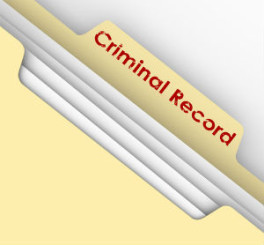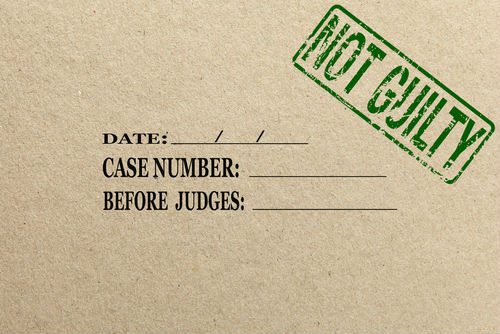Texas Expunction Attorney

In Texas, you may be eligible to clear your criminal record through a process known as “expunction” or “expungement.” Once expunged, the record is destroyed and no longer visible to potential employers or the general public.
Expunction can help you avoid devastating criminal background checks. If you qualify and successfully obtain an order of expunction, you can deny the existence of the record and the expunction process. In many cases, an individual whose record has been expunged can legally say he or she has never been arrested or convicted of a crime.
Reasons to Expunge Your Criminal Record
Some people may be entirely unaware they have a criminal record until it shows up on a background check.
If you have been charged with a crime or arrested, several records may be generated that can be located through harmful background checks. Even if you are not arrested or the charges are dismissed, the records will remain until they are removed through the legal process of expunction.
The primary reasons to seek an expunction include the following:
 You are applying for a new job. Most job applications have a section where the applicant must state whether he or she has been charged with a crime. Even if the case was dismissed and you were not convicted, you would have to answer “Yes” to this question. If your record has not been expunged, you are putting yourself at risk of either not getting the job or violating the law, depending on how you answer. If your record is eligible for expungement, you can truthfully answer “No” to this question.
You are applying for a new job. Most job applications have a section where the applicant must state whether he or she has been charged with a crime. Even if the case was dismissed and you were not convicted, you would have to answer “Yes” to this question. If your record has not been expunged, you are putting yourself at risk of either not getting the job or violating the law, depending on how you answer. If your record is eligible for expungement, you can truthfully answer “No” to this question.- You are applying for a loan or financial aid. Some lenders feel that individuals who have been arrested or convicted of a crime are less trustworthy and may not be as likely to fulfill their financial obligations. This can result in higher interest rates or the denial of a loan application. Unless your record is expunged, you could have difficulty getting a new car, buying a home, paying off debt or investing in your future.
- You are planning to adopt a child. Those with a criminal record are not viewed as favorably as those with a clean record. Depending on the reason for your arrest, or the charges that were filed, you may be deemed ineligible to adopt a child unless you can expunge the record and erase this from your past.
- You simply want some peace of mind. You can rest easier knowing your slate is clean and your past encounters with the criminal justice system can no longer come back to haunt you. This is a completely valid reason for wanting to get your record expunged
Qualifying for an Expunction in Texas
 An expunction guarantees your criminal record will be fully erased from harmful background checks. While many people are interested in expungement, the legal process is a difficult and time-sensitive process that applies only to certain situations and offenses.
An expunction guarantees your criminal record will be fully erased from harmful background checks. While many people are interested in expungement, the legal process is a difficult and time-sensitive process that applies only to certain situations and offenses.
You may be eligible to expunge your criminal record if you satisfy at least one of the following criteria:
- You were found not guilty after trial.
- You were arrested but never formally charged with a misdemeanor information or felony indictment; the charge is no longer pending for any reason; and you have not been convicted of a felony in the five years preceding the date of the arrest you want expunged.
- You were charged with a misdemeanor information or felony indictment, but the court dismissed the charge or quashed the information or indictment; the statute of limitations for your charge has run; and you have not been convicted of a felony in the five years preceding the date of the arrest to be expunged.
- You were convicted but later pardoned by the governor (which is extremely rare).
- You were convicted at the trial level, but then acquitted by the Texas Court of Criminal Appeals.
- You completed deferred adjudication for a Class C Misdemeanor.
- Another person pretended to be you when they were arrested, leading to false charges on your criminal record.
If you are eligible for an expunction based on one of the criteria listed above, any entity maintaining your criminal record will be ordered to erase the record. After several months, the record should be eliminated from public background searches.
The Expunction Process and How Long It Takes
To begin the expunction process, you will be required to file a petition for expunction with the district court for the county in which your criminal offense occurred or in which you were placed under arrest. You are allowed to submit your petition at any time, so long as you were acquitted of the crime you wish to expunge.
If you were arrested but not charged, or charged but the case was dismissed, there will be a statutory waiting period before you can seek the expunction of your criminal record, as outlined in Chapter 55 of the Texas Code of Criminal Procedure. The time period depends on the offense and the statute of limitations for that offense.
Once the expunction process is initiated, it generally takes a few months until the process is completed. After the petition is received, a hearing date is set. If your expunction is granted, the court will order the expunction and ultimate destruction of your criminal record.
Hiring a Skilled Expunction Lawyer to

If you’re interested in expunging your criminal record, you should seek help from an experienced Texas Criminal Defense Attorney. Our dedicated defense team can help accelerate the expunction process by conducting a complete review of your criminal record, determining your eligibility, screening for potential legal issues that may arise, and ensuring all pre-filing requirements are addressed correctly.
With an in-depth knowledge of the expunction process, the Westbrook Law Firm can assist you with gathering the necessary documentation and preparing your petition. To determine if you qualify for an expunction, please call us today at 281-888-5581. You can also submit an online form by clicking here.



 In Texas, you may be eligible to clear your criminal record through a process known as “expunction” or “expungement.” Once expunged, the record is destroyed and no longer visible to potential employers or the general public.
In Texas, you may be eligible to clear your criminal record through a process known as “expunction” or “expungement.” Once expunged, the record is destroyed and no longer visible to potential employers or the general public.















